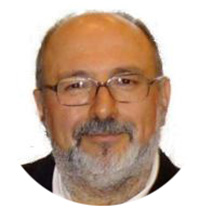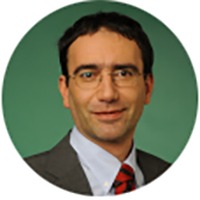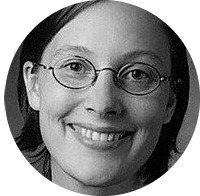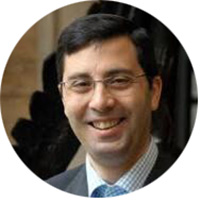Impressions from the XVI April Conference: International Participants
The HSE Look talked to several researchers from the HSE international labs about their impressions from the April Conference.

Panos Pardalos,University of Florida /Laboratory of Algorithms and Technologies for Networks Analysis at HSE Nizhniy Novgorod
The opening was very nice; I liked very much that speakers emphasized importance of education, not only oil, for Russia. I certainly believe that in the future the good technology and good educated people will do their best. I also liked the World Bank expert’s presentation, it was very optimistic, and it’s positive to see how good Russia has been doing. I think, in a few years there will be an improvement, because the first time I was in Russia was in the late 80s, and I’ve seen a huge difference.
Our Laboratory of Algorithms and Technologies for Networks Analysisis is at HSE Nizhniy Novgorod, and we used the pre-conference time in Moscow to hold a workshop with Yandex to discuss the methods of analyzing networks and data. In addition to the grant for the laboratory we also have a Russian Science Foundation grant on how to analyze very large networks, and companies like Yandex and Google have a lot of interest in this. We work on many mathematical problems behind the techniques of analyzing data.
Félix J. López Iturriaga, Universidad de Valladolid /Laboratory of Intangible-driven Economy at HSE Perm
The conference is very interesting. I was really surprised by the number of papers – it’s such a big conference, such a multidisciplinary conference. And at the same time I like that there are some opportunities for smaller events within it: I am with the HSE Perm laboratory of Intangible-driven Economy, and we had a special session about our topics. It’s really complementary to attend a big conference and also to discuss the topics I am usually working on.
On the 8th I would have liked to attend one of the sessions with the experts of the World Bank: but there were too many people, so we could not fit into the room. On the 9th I attended a lecture by the keynote speaker Stefano Zambon (Professor of Business Economics at the Faculty of Economics of Ferrara University, Italy), on the management and measurement of intellectual capital as leverage for company and territorial growth, and it’s been really a good experience. We are preparing some common activities between two laboratories: the corporate finance laboratory and the intangibles laboratory, and the April conference gave us a chance to discuss common points and plan a conference for next year.

Dirk Meissner, Deputy Head of the Research Laboratory for Science and Technology Studies at HSE Moscow
Our section, Foresight and Priority Setting in Science, Technology and Innovation: Issues for S&T Policy, was quite interesting and fascinating. Many researchers from our laboratory are participating in the session, as well as many people from outside the HSE. We did not have any problems inviting even the ‘big names’; some even agree to come to our events more than once or twice, so we can be selective in invitation and provide more diversity of opinions. I think it is a sign of success for our work.

Ulla Pape, Ruhr-Universität Bochum / Laboratory for Non-Profit Sector Studies at HSE Moscow
Most interesting thing at the roundtable (“Is Russia Ready for the New Era in Government-Nonprofit Relations?”) for me was to hear different experiences from participants and the speakers about what the reality of non-profit organizations looks like. If you look at the situation on the ground, it is completely different from the theoretical ideas of cooperation with the government. There were interesting discussions about the quality of this cooperation since there are a lot of instruments and mechanisms of involving non-profit organizations, but little information about their actual usefulness. There is also a deficit of information about the level of autonomy in decision-making of the non-profit organizations which use the government’s instruments, and whether they can really pursue better policies in the social sphere.
At HSE I work with the Laboratory for Non-Profit Sector Studies, and we have a project on social sector NGOs in Russia’s regions and how they work together with the state institutions. Here at this section a several participants also work in our lab’s project – Yulia Skolkova, Vladimir Benevolenskiy, and Irina Krasnopolskaya. We cover 8 different regions which differ on the quality of economic development and on the openness of the system and civil society development. Of course, we have different subgroups within the laboratory. From my work at the HSE, this is the aspect that I enjoy most –I am working together with so many different people, and learn a lot from them, and we can discuss really interesting things.

Angel Barajas, University of Vigo / Laboratory of Intangible-driven Economy at HSE Perm
I went to the plenary session on the first day – it was very interesting for me, because I had some insights about the situation in Russia. In our session on measurement of intellectual capital of companiesI personally was very interested in the presentation on the influence of investment in R&D on human capital and performance of the companies. Also interesting for me were the presentations on what might happen with export companies and the one about the influence of human capital on performance and sustainable growth.
I work with the Laboratory of Intangible-driven Economy in HSE Perm. We have three main lines of research: the role of intangibles for corporate governance, for small and medium companies, and the role of intangibles in sport economics. Every month, more or less, we hold a workshop where a member of the lab presents their research at the level that it is, and then we discuss how to develop and improve it. Now we are starting to prepare the summer school which we will hold in June to attract more students into research. It will also be an opportunity for all the international members of the lab to meet and discuss our projects.
The full text of the issue can be found in The HSE LooK 4 (21), April 2015. For more information please visit ifaculty.hse.ru.
See also:
Applications to Participate in April International Academic Conference Now Open
HSE University is now accepting proposals to present academic reports at the XXVI April International Academic Conference named after Evgeny Yasin. Applications can be submitted until December 16, 2025. The conference events will take place mainly on-site in Moscow from April 14 to 17, 2026.
24 Countries Represented at 25th Yasin International Academic Conference Held by HSE University
The Programme Committee of the 25th Yasin (April) International Academic Conference on Economic and Social Development has summed up the initial results. In 2025, 1,384 people from 24 countries and 29 Russian regions participated in the conference, with 335 of them delivering presentations.
Stuck in the Net: How Much Time Children Spend Online
On average, a schoolchild spends 48 hours a week on studies—equivalent to a six-day working week for an adult. This was highlighted by experts at the round table ‘Domains of Children’s Well-Being Evaluation for Human Potential and Evidence-Based Social Policy Development,’ held as part of the 25th Yasin (April) International Academic Conference.
Russian and Chinese Scholars Share Experience of Transformation of Doctoral Education
The Russian and Chinese postgraduate education systems originally borrowed their institutional frameworks from the Soviet Union. However, in the 21st century, they have evolved along different paths. While key performance indicators for postgraduate programmes in Russia are declining, China is seeing a rapid increase in the number of postgraduate students. These contrasting trajectories and the reforms undertaken in each country in recent decades were the focus of a roundtable discussion held as part of the 25th Yasin (April) International Academic Conference.
Nobel Laureate Proposes Solution to Markov Equilibrium Problem
In dynamic games, a Markov equilibrium involves strategies that guide players' behaviour based on the current state of the game, rather than its entire history. This approach is effective when players have access to complete information. But when uncertainty arises in the game—for instance, when players are unsure of who they are dealing with—this approach can become problematic. Eric Maskin, Nobel Laureate in Economics and Professor at Harvard University, addressed this issue in a paper presented at the XXV Yasin (April) International Academic Conference on Economic and Social Development held at HSE University from April 15 to 18, 2025.
‘The World Is Becoming More Complex and Less Predictable’: What Scientists Say about the Future
The future is now more difficult for researchers to forecast, and events that are hard to predict are playing an increasingly significant role. But there is good news too: scientists are confident that humanity will adapt to any changes. This was the focus of discussion at the International Symposium ‘Foresight in a Rapidly Changing World,’ which took place as part of the 25th Yasin (April) International Academic Conference.
Fragmentation and Bloc Formation: How the Global Economy is Changing
Sergey Dubinin, former head of the Bank of Russia and Professor of Finance and Credit at the Faculty of Economics at Moscow State University, has delivered an honorary address at the XXV Yasin (April) International Academic Conference. He spoke about the transformation of the global monetary and financial system, as well as the Russian economy.
More Children, More Happiness: HSE Experts Study Impact of Number of Children on Russians' Assessment of Happiness
Russians with children feel happier than those without children. At the same time, the number of children influences the assessment of happiness: the more children Russians have, the happier they feel. These conclusions were outlined inthe report ‘More Children, More Happiness: The Impact of the Number of Children on Russians’ Assessment of Happiness,’ presented at the XXV Yasin (April) International Academic Conference on Economic and Social Development, held on April 15–18 at HSE University. The study was conducted by Elena Churilova, Senior Research Fellow, and Dmitry Jdanov, Chief Research Fellowat HSE International Laboratory for Population and Health.
HSE Expands Cooperation with Gulf Countries
HSE University and the Centre for International Policy Research (Qatar) have agreed to collaborate in the field of social sciences, with plans for joint research, academic exchanges, and regular expert engagement. The agreement was signed during the roundtable ‘State Capacity and State Resilience in the Global South,’ held as part of the 25th Yasin (April) International Academic Conference at HSE University.
‘We Grow Old before We Become Rich’: How BRICS Countries Can Achieve Economic Growth
Due to population aging, many countries aiming for economic prosperity have limited time left to undergo economic transformation, according to the honorary report Narratives Versus Reality on Employment and Demography: How Undermining Institutions Can Push Countries Out of the ‘Narrow Corridor’ by Santosh Mehrotra of the University of Bath. The report was presented at the XXV Yasin (April) International Academic Conference.


